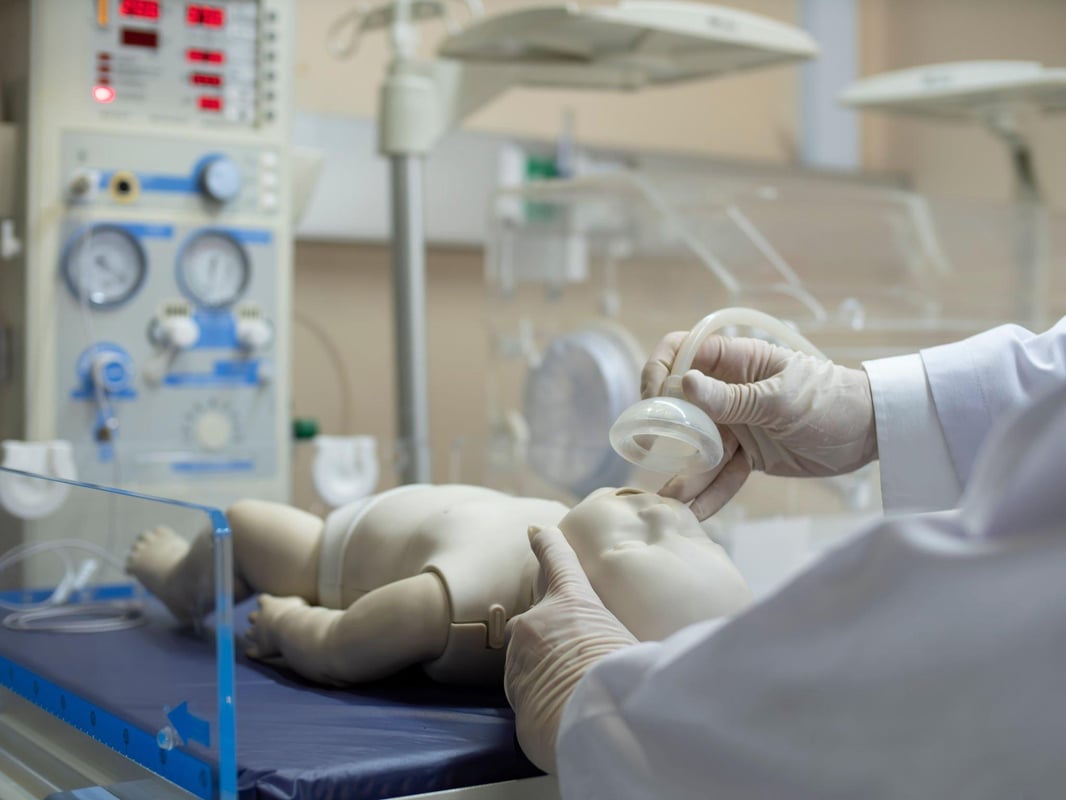
Financial aid (may be available)

Financial aid (may be available)

Financial aid (may be available)

Financial aid (may be available)
$276 total
$2,075 total
$270 total
$410 total
$365 total
$150 total
No cost info
$285 total
$150 total
No cost info
Pediatric Advanced Life Support (PALS) is a critical certification for healthcare professionals who work with children. From nurses and paramedics to physicians and respiratory therapists, obtaining PALS certification can significantly enhance one's ability to provide the best care for pediatric patients. If you're considering PALS classes in Columbus, this guide can help you understand the training requirements, what to look for in a class, and what the certification process looks like.

PALS is a training program designed to enhance healthcare professionals' knowledge and skills in managing critically ill children. This program focuses on the systematic approach to pediatric assessment, basic life support, PALS treatment algorithms, and effective resuscitation. PALS certification is often a requirement for roles in emergency departments, intensive care units, and other high-acuity areas in hospitals or healthcare facilities.
To enroll in a PALS class, you must be a healthcare professional who either directs or participates in the management of respiratory and/or cardiovascular emergencies and cardiopulmonary arrest in pediatric patients. This includes professionals in emergency medicine, emergency response, intensive care, and critical care units.
Before taking a PALS class, you should have:
A current Basic Life Support (BLS) certification.
The ability to understand ECG rhythm interpretation.
A solid understanding of the anatomy and physiology of the heart.
Remember, these prerequisites are designed to ensure you can fully participate and benefit from the PALS course.
When searching for ""PALS classes near me in Columbus"", there are several factors to consider:
Accreditation: The class should be accredited by recognized bodies like the American Heart Association (AHA).
Instructors: They should be experienced healthcare professionals who can provide real-world insights.
Course Materials: The class should offer comprehensive course materials that cover all necessary topics.
Course Structure: It should combine both theory and practical sessions for a holistic learning experience.
Reviews and Testimonials: Check what past students say about the class to understand its effectiveness.
PALS classes typically cover a wide range of topics, including:
Pediatric emergencies
The systematic approach to pediatric assessment
Effective resuscitation and team dynamics
PALS treatment algorithms
Basic life support skills
Students can expect a mix of theoretical instruction and hands-on training, with simulations of pediatric emergencies for practical application of learned skills.
The PALS certification process typically includes:
Completing the PALS course: This usually involves a mix of classroom learning, hands-on training, and assessment.
Passing the Exam: At the end of the course, students must pass a written exam and a skills test.
Obtaining the Certification: Once the exam and skills test are passed, students receive a PALS provider course completion card, valid for two years.
Remember, maintaining your certification requires periodic recertification, typically every two years.
Once you have your PALS certification, you can find related jobs in various healthcare settings. Positions in emergency departments and pediatric care units often require or prefer candidates with PALS certification.
After obtaining the PALS certification, healthcare professionals may opt to further their knowledge and skills by taking additional classes such as:
Advanced Cardiovascular Life Support (ACLS)
Neonatal Resuscitation Program (NRP)
Emergency Nursing Pediatric Course (ENPC)
As a PALS provider, your career opportunities in the healthcare sector significantly increase. Here are some ways to further your career:
Further Certification: Obtain additional certifications like ACLS or NRP to broaden your knowledge and increase your employability.
Specialization: Consider specializing in a particular area of pediatric care, such as pediatric critical care or pediatric emergency medicine.
Leadership Roles: With experience and additional training, you can aim for leadership roles within your organization.
. These additional qualifications can open up new career paths and opportunities in the healthcare sector.
Attending PALS classes in Columbus can provide valuable networking opportunities. You'll meet other healthcare professionals, instructors, and industry experts. This can lead to job offers, partnership opportunities, or insights into new areas of pediatric care.
Pursuing PALS training in Columbus can be a rewarding decision for healthcare professionals looking to specialize in pediatric care. The certification not only enhances your skills and knowledge but also opens up new career opportunities. Remember to choose a reputable and accredited program to ensure you receive the best possible training. Whether you're a seasoned healthcare professional or starting your career, PALS training can equip you with the skills to make a difference in children's lives.
Dreambound has you covered with a series of detailed guides, each designed for a different city. And if you're elsewhere or considering a move, we've got more guides that might fit your needs.
Thinking about making a career switch? Dreambound has written thorough guides to help you understand different options available to you.
Dreambound's platform allows prospective students to find the right educational program for them through searching, filtering, and connecting with our extensive selection of career & technical education partners.
Dreambound has over 70 programs across healthcare, technology, business, and industrial trades. This includes programs such as Medical Billing, Cybersecurity, and welding.
Some of our schools offer financial aid for those who qualify. Many others offer payment plans, where you can pay the cost of class over time.
Yes, Dreambound offers many online programs. On Dreambound's search, you can filter by online, in-person, and hybrid (part online, part in-person).
Dreambound is completely free for you to use! We are supported by schools and organizations who pay to advertise on our website, so we can offer all of our career resources for free.